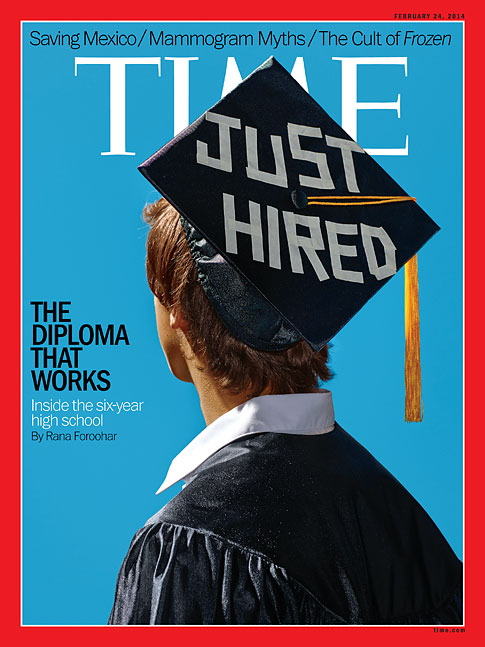
(7 of 7)
But there are other big questions to resolve before the six-year high school can scale up well beyond its successful pilots. Funding is one, although a number of solutions are being proposed. Tennessee Governor Haslam says surplus funds from the lottery could cover his state's estimated $34 million annual cost of providing free community college. Litow and others want funds from the Perkins Act, which is up for congressional reauthorization this year, to be extended and redirected more productively to models like P-Tech.
National rollout will require enlightened local leaders. In both Brooklyn and Chicago, P-Tech has enjoyed the support of education-reform mayors with an aggressive style able to ram through new programs. Those schools are also located in major population centers with Fortune 500 employers handy. Harvard's Schwartz says that industry-wide cooperation will be necessary to move P-Tech forward in places where there is no single blue chip capable of doing that on its own.
Resolving these questions is imperative, because the evidence shows the future for employable students must include at least two years of postsecondary education, whether it's done in high school or beyond. "Some kids will graduate in six years and some in four, but what we're finding is that when we ask more of kids in terms of curriculum, they always hit the bar--always," says Anthony Salcito, VP of worldwide public-sector education at Microsoft, which has supported P-Tech and other STEM secondary schools around the country.
The P-Tech model has raised not only student and educator aspirations but also the bar for private-sector involvement in education at a time when the corporate share of the economic pie has never been larger or the workplace and economy at large more bifurcated. Litow says he's fielding daily calls from corporations interested in becoming P-Tech sponsors--not just in the tech sector but in manufacturing, health care and other industries with labor shortages. Eighteen new schools modeled on the IBM playbook will be coming online this year, and another 11 are likely by 2015.
In November, President Obama earmarked $100 million in new grant funds for schools like P-Tech to carry on their experiments in education, something he lauded in his past two State of the Union speeches. "We're shaking up our system of higher education," says the President. Of course, the final step in shaking things up has yet to be taken. The last time we had a reset of secondary education, leaders and voters made sure it was free to everyone. Now, with so much agreement that young people need more than four years of high school to succeed, the challenge once again is guaranteeing the right education for all.
